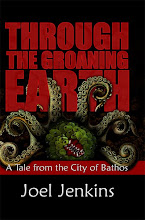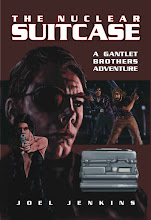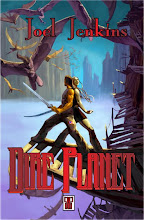Wednesday, November 27, 2013
World Building In Action Fiction
The rule for world building in Action Fiction is simple: Never use a paragraph when a sentence will suffice.
Successfully executing this maxim, however, takes restraint and the development of certain skills. The idea is to avoid infodumps--long passages that explain the world in which the character resides and which slow down the progression of the story line. Many readers find these passages deadly boring and may discard your story in favor of something that requires less attention span--like TV or a video game. Even a couple paragraphs of exposition can be too much.
The trick is divulging bits about your carefully crafted world on a need-to-know basis. If the reader doesn't need to know how the complexities of Muvari tribal politics work in order to understand the story line then I leave it out. Thus far, I've written five Dire Planet books, and in each one the reader learns a little bit more about the politics of the Muvari Tribe. Why didn't I lay out all this in the first book? Because I didn't need to. I laid a few hints, but provided just enough information for the reader to understand the story that I was telling at the time. The rest I saved for future books.
One excellent method for world building is through dialogue. If you listen to conversations around you, you'll likely hear people discussing various aspects of civilization as it applies to their lives; this includes politics and government. The characters in your novels will naturally have similar inclinations, and through their discussion you may be able to bring out certain points that are necessary to the development of your world, and more importantly your plot.
Another method I use is footnotes. I find etymology fascinating and I often footnote certain words or phrases that the ancient warrior tribes of Mars use. These side notes about the development of these expressions or colloquialisms are not necessary to the story. In fact, if I included them in the text of the story they would certainly slow it down. I provide the footnotes in case the reader is interested in further information. If they are, they will refer to and enjoy the footnotes. If the reader finds all of this dreadfully boring and wants to get on with the story all he needs to do is ignore those footnotes and get on with his reading. They haven't missed anything absolutely necessary to the story.
"But, Joel, I have reams of notes describing every aspect of my fictional world. All that detail will be wasted if I don't include it in my novel!"
If those reams of notes have been helpful to you in telling a good story, then they were not wasted. The real danger is in letting all those notes take over the story you are attempting to tell. Besides, if you write a successful fantasy or science fiction series you can always compile and release those notes for hardcore fans--the same type of hardcore fans that enjoyed Tolkien's Silmarillion.
Subscribe to:
Post Comments (Atom)





















No comments:
Post a Comment